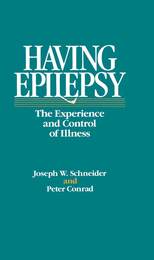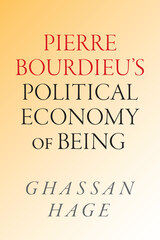
Epilepsy and the Family: A New Guide updates Richard Lechtenberg’s classic handbook for people with seizure disorders and those closest to them. It offers coping strategies for the wide range of practical and emotional challenges that epilepsy can introduce into the family: marital and sexual difficulties, concerns about pregnancy and inheritance, drug compliance and abuse among teenagers, personality changes and suicide. This new guide addresses the personal questions that adults with epilepsy may be reluctant to ask their physician, and it offers chapters tailored to the special stresses of spouses, parents, and siblings who, like the patient, must live with a seizure disorder.
As many as two and a half million Americans have epilepsy. Thirty percent of them are children under the age of 18. And there are 125,000 newly diagnosed cases each year. A practicing neurologist with decades of clinical experience, Lechtenberg clearly and concisely explains the biology behind this complex and relatively widespread class of diseases. He discusses the various medical conditions that can cause seizures in children and adults and points out that the cause of many seizure disorders is never discovered. Patients and those who care about them will find authoritative but accessible advice on various medications and surgical approaches and the information they need to ask informed questions of their doctors. For the medical professional, this book offers important information on how to better treat the patient with epilepsy by recognizing the needs of the entire family.
This revised edition addresses:
— New drugs and surgical techniques that have been developed in the past 15 years
— Pharmaceutical and non-pharmaceutical treatment strategies
— New clinical data on drug combinations and side effects
— Up-to-date statistics for mortality, reproduction, violent behavior, divorce, and suicide



The candid, inspiring story of a woman’s experience with a chronic, unpredictable neurological condition
When twenty-nine-year-old reporter Stacia Kalinoski regained consciousness on a couch at the TV station where she worked, she assumed that she’d had another seizure. But the electrical storm that had just torn through her brain was more destructive than she could have imagined, and the broadcast journalism career she loved swiftly came to an end. Forced to confront the reality of her medical condition, Kalinoski made the risky decision to undergo brain surgery, targeting the epilepsy that was ravaging her life.
In Racing Uphill, Kalinoski describes the seizures that occurred while she was running, which led to her pursuit of an uncertain cure. Rallying the grit she developed as an athlete and engaging the research and reporting skills she acquired as a journalist, she gives us a rare inside look at the ways epilepsy can change a life. Moving beyond her own personal experience, Kalinoski interviews prominent epileptologists to understand how seizures can spread, steal memories, and create strange behaviors and mood disorders. She seamlessly joins what she learned from her research with her own story, offering valuable insight into the experience of grappling with a relentless neurological disease.
The vivid auras that preceded seizures and the damage that followed; the toll of her epilepsy on her family and loved ones; the extraordinary determination her reckoning required—these are all part of Kalinoski’s story of adversity, denial, acceptance, and resilience. In sharing the remarkable opportunity that epilepsy presented for her courage and growth, Stacia Kalinoski speaks to anyone facing an uphill battle and offers inspiration for taking control of one’s own health.
READERS
Browse our collection.
PUBLISHERS
See BiblioVault's publisher services.
STUDENT SERVICES
Files for college accessibility offices.
UChicago Accessibility Resources
home | accessibility | search | about | contact us
BiblioVault ® 2001 - 2025
The University of Chicago Press









